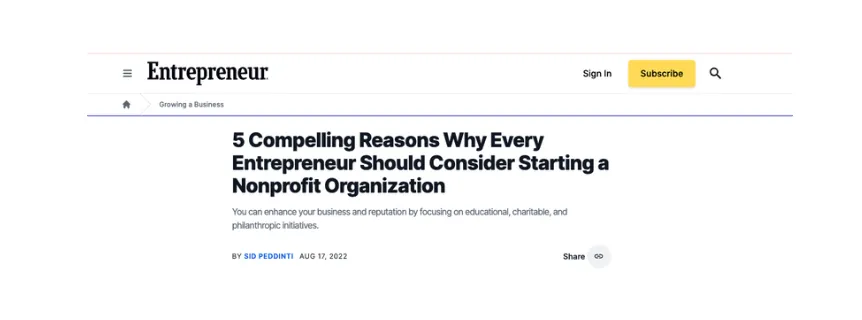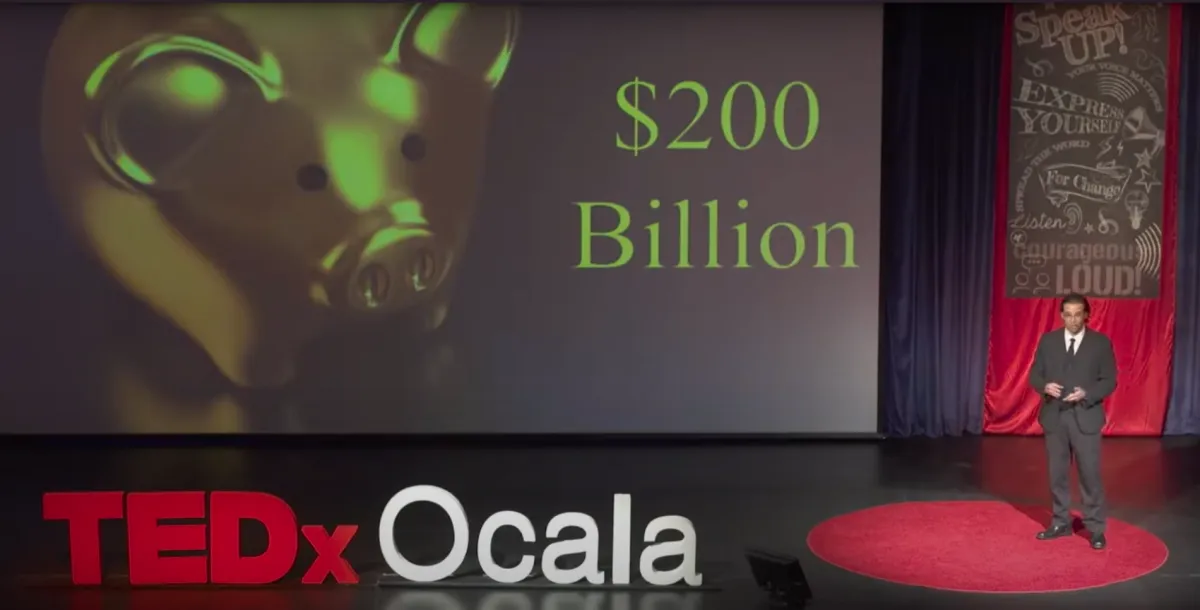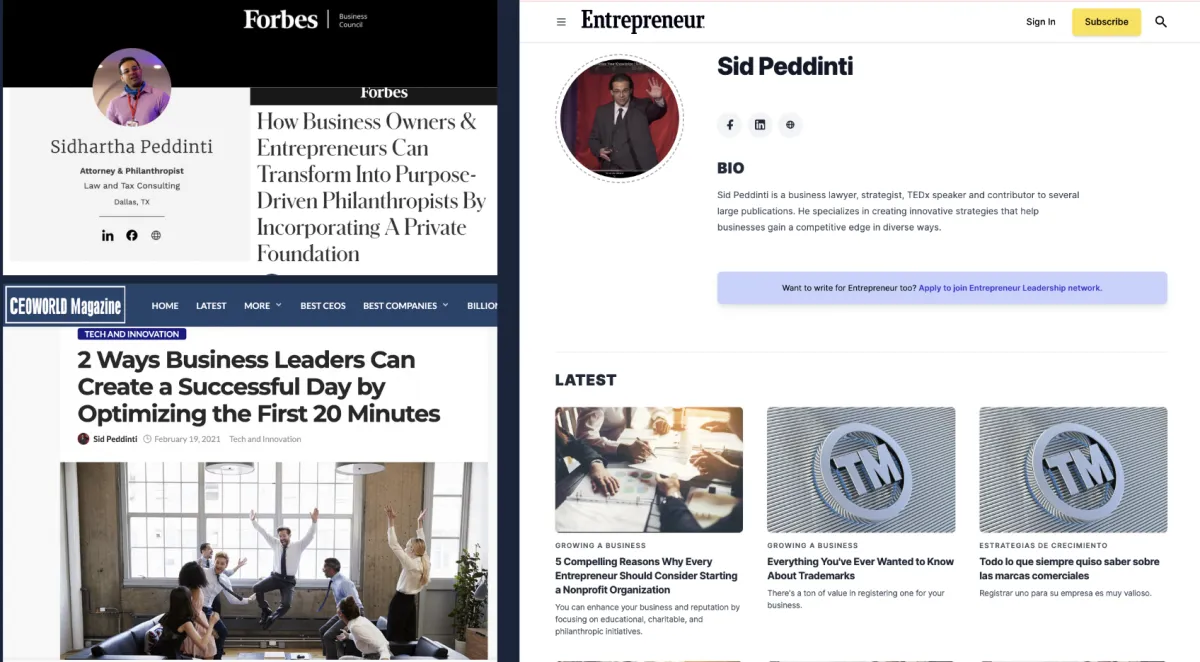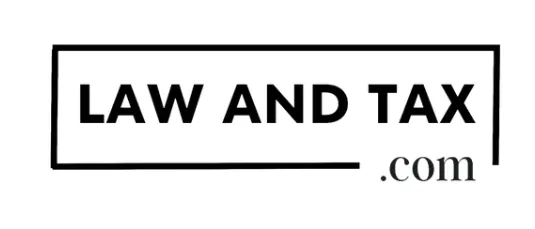Welcome To Law & Tax Foundation™
We Offer AI-Powered Business, Estate, Nonprofit, and Tax Education, Research, And Consulting Services

10,000+ Cases
We have represented over 10,000 cases in diverse business and legal industries in diverse roles and capacities.

$50m+ Education Grants
We have helped our nonprofit clients unlock over $50 million in grants and funding from various sources to empower society.

$5+ Billion In Assets
We have restructured, facilitated, and negotiated $5 billion worth of assets and intellectual property over two decades.
Welcome To Law & Tax Foundation
We Help People Connect The Law, Tax, And Finance Dots With The Help Of Cutting-Edge AI Legal & Tax Tools
It's Sidhartha "Sid" Peddinti here.
My mission is to empower people through "law, technology, and philanthropy".
My legal entities were pierced in 2005.
My banks pulled the plug and forced me into the ground.
They seized my assets and flushed me clean.
I filed for a million-dollar bankruptcy at the age of 22.
Then my grandfather died and left us a probate time bomb.
That lasted all through law school.
We watched 60% of his estate destroyed by taxes and fees.
I've lost millions in revenue due to copycats stealing my IP.
I've also lost millions due to poor decisions and outright scams in the investment world.
I’ve even survived snake bites, stingray attacks, house fires, earthquakes, and tornadoes.
Those experiences didn’t break me - they awakened me.
They turned me into a philosopher of life, a legal and tax architect, and a relentless truth seeker.
🧠 What You’ll Find Here
This site is your gateway into a world of decoded legal and tax truths, where we unpack what most professionals don’t tell you - or don’t understand themselves.
I went bankrupt despite having the top lawyers, accountants, financial advisors, insurance agents, and realtors on my team.
My grandfather's estate went into probate despite having a will, trust, POA, and all sorts of insurance policies.
The truth is that, despite having all the top experts on your team, a little oversight, poor communication among your advisory teams, and inadequate legal or tax knowledge can destroy all your plans and send you to probate anyway.
You’ll find:
Case law, IRS codes, and hidden traps most planners miss
Advanced research, strategic hacks, and implementation roadmaps
A library of videos, blogs, tools, publications, and in-depth courses
Real-world examples of structures that failed — and how to fix them
🤖 And Yes — We Use AI. A Lot.
Since 2014, I’ve been building AI tools and legal tech apps:
One measured referral ROI metrics for ecommerce firms
One created smart operating agreements for tech firms
One digitized thousands of Fortune 500 entertainment contracts
One built and digitized educational nonprofits during COVID and unlocked $50+ million in funding
And now, the one that blends them all:
The Mythbuster AI™: An AI assistant trained on business and estate law, tax code, estate traps, insurance myths, and legacy strategy (over 10,000 cases, publications, codes, and applications trained and processed).
📍This isn’t theory.
It’s a culmination of pain, research, rebuilding, and innovation.
Explore the site.
Watch the videos.
Use the tools.
And protect what you’ve built - before it’s too late.
Talk soon,
Sidhartha, Esq.
BA, BIA, LLB/JD, LLM



Upcoming Events
Our affiliate courses are designed by experts who have years of experience and proven results in the affiliate marketing industry.

20 Benefits of Starting a Foundation
20 Unique Ways to Protect Your Assets, Preserve Your Wealth, and Lower Taxes by Starting A Family Foundation
Here are a few highlights from the video:
1. Lower Personal Liability: Donated assets belong to the PF, protecting them from personal lawsuits. Once transferred, these assets are safeguarded from any legal claims that may arise against the donor.
2. Protect Assets from Spendthrift Heirs: By donating assets to a private foundation, donors can ensure their charitable contributions are preserved and managed responsibly, protecting them from heirs and beneficiaries who may not have prudent financial habits.
3. Corporate and Personal Tax Benefits: Corporations can reduce their taxable income by up to 10% each year through donations to a PF. Individuals can reduce their taxable income by up to 30% of their AGI by donating cash, and by up to 20% for donating assets like real estate and stocks.
4. Carry-Forward Excess Deductions: Excess charitable deductions can be carried forward for up to five consecutive years on personal tax returns, allowing donors to maximize their tax benefits over a longer period.
5. Tax-Free Growth: Assets within a private foundation grow tax-free, maximizing wealth for charitable purposes. This allows for greater accumulation of wealth dedicated to charitable efforts.
6. Boost Goodwill: Engaging in formalized philanthropy boosts goodwill, trustworthiness, and brand perception for corporations, enhancing their public image and fostering positive stakeholder relationships.
7. Structured Charitable Giving: Private foundations require a structured approach to charitable giving, including a mandatory 5% annual distribution of assets, ensuring consistent philanthropic efforts.
8. Align with Wills, Trusts, and Corporations: Private foundations seamlessly integrate with wills, trusts, and other legal structures, creating a cohesive strategy for long-term charitable impact.
We invite you to attend a free workshop where we go through frequently asked questions, practical examples, share experiences, and give participants to network and meet other entrepreneurs and investors (who are also on the same journey to learn more about wills, trusts, and foundations), as well as professionals actively involved in law, tax, and financial industries.
Book your spot below - it's 100% FREE - you'll get a chance to speak with our Attorneys & Tax Professionals in real-time.
